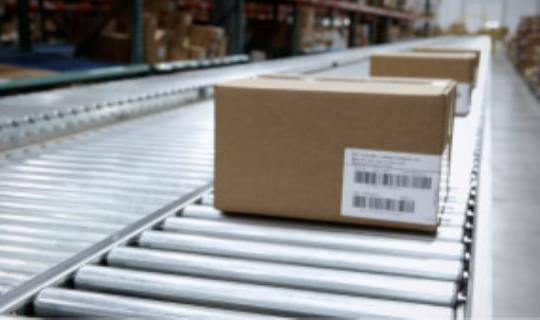Article: The Logistics of COVID-19 Vaccine Trials
By World Courier
The race for a COVID-19 vaccine is one of the most significant
pharmaceutical endeavors in a generation. Extraordinary investment and collaboration
combined with new technologies and methods could produce at least one
successful vaccine within expedited timescales, with the requirement for more
than seven billion doses worldwide.
Vaccine development and manufacture is the first
challenge; it’s a long process involving large-scale trials with the
recruitment of healthy people. Ensuring it reaches the people who need it,
with product integrity maintained, is the second challenge. Distribution of the
approved vaccine will extend across the entire globe.
Based on World Courier’s experience of maintaining
supply channels during times of public health crises and transport disruption,
we’ve outlined key logistics considerations that apply to COVID-19 vaccine
development and distribution – albeit on an unprecedented scale.
Adjuvant Drug Sourcing
Adjuvants are commonly used in vaccines to amplify
their effect. They can reduce the time to a robust immune response, and the
number of doses needed to achieve it. As such, there is a strong case that adjuvants will be essential in vaccinating the world’s population at speed.
It is therefore vital that any vaccine trial – and
later, distribution network – has a cast-iron supply plan in place for sourcing
adjuvants. Maintaining the shortest possible supply chain – ideally procuring directly from the adjuvant drug
originator – leaves less room for complications,
and guarantees provenance.
The Correct Packaging
Vaccines are commonly transported cooled (2-8°C), frozen
(-20°C) or deep frozen (-70°C). If the vaccine is to be effective once it
reaches the recipient, there must be no temperature deviations. Transit times
from manufacturing facility to final destination for administration could be
extended due to the global nature of distribution required.
Only specialist packaging can keep the dose
within range for extended periods of time, especially for low-volume shipments.
For cases like these, passive containers combining materials like expanded
polystyrene (EPS) and coolants such as dry ice or phase change materials offer
the greatest consistency over the longest time – and the ability to replenish
coolants if required.
End-to-End Cold Chain Maintenance
Packaging is an important part of preventing temperature
excursions, especially if there are unexpected and out of control delays. But each
stage of the journey must be properly equipped for refrigerated storage and
coolant replenishment as applicable – often maintaining differing temperatures
between individual consignments.
That requires planning a route that may not be
logical on the map, but follows the logic of what facilities are available;
both in terms of physical capabilities at airports and storage depots, and
having staff with the right training to handle the shipment. Monitoring
temperature in real-time is essential for enabling immediate action should an
excursion occur.

Established Chain of Custody
Supply chains are only as strong as their weakest
link. An auditable chain of custody is the only way to ensure confidence that
the shipment hasn’t been tampered with, switched with counterfeit goods, or
experienced an excursion at any point.
An established chain of custody is also a vital
component of ensuring everybody handling the shipment works to the same
regulatory and good practice standards, following the same SOPs. World Courier
is the first logistics company to have obtained global GDP certification
against three major GDP standards – and we ensure all
our associates uphold these regulations.
Local Knowledge
At a time when unexpected disruptions have become a
feature of global supply chains, local knowledge has become a prerequisite. It
is vital to have people who know which airports and depots have the necessary
storage facilities if a shipment is held up or must re-route. People who can
negotiate changing customs requirements in the local language. When time is a
factor, nothing beats the combination of local knowledge and international
experience for implementing contingency plans.
Constant Communication
When everything runs smoothly, you need never talk.
But when it doesn’t, constant communication is essential. The consignee should confirm time of arrival,
shipment volume, and temperature at delivery – so if anything unexpected
happens, it can be addressed immediately. The courier should also confirm the
consignee knows how to handle the shipment to maintain its integrity once it’s
left the logistics provider’s network.
Contingency Planning
When border restrictions can be implemented with
little warning, it is vital to have contingency plans in place if delivery timescales
are to be maintained. Alternative flights, routing and entry points should
be planned for every lane. Switching between modes of transport – from a
commercial to charter flight, for example – should be planned for where
necessary. Local contacts become invaluable in ensuring all paperwork is taken
care of, and that GDP standards and temperature specs are upheld despite the
alterations.
Logistics Planning Has Never Been More Important
Speed is essential, but will be for nothing if it
comes at the cost of shipment integrity for a vaccine that is addressing a
global health crisis. At the same time, the pandemic has made international
transport arguably more complex than at any time in the modern era.
World Courier has established an international network,
with local experts across the globe that can shepherd your consignments
wherever they need to be, pivoting when necessary. We have a robust record of
reliably transporting pharmaceuticals to difficult-to-reach places, keeping
within strict temperature ranges. 99.9% of our consignments are delivered
without incident.
For more information on maintaining the biopharma
supply chain in the COVID-19 pandemic, visit our resource center. Or to find out how
we can ensure your vaccine trial goes according to plan, get in touch with our experts today.



